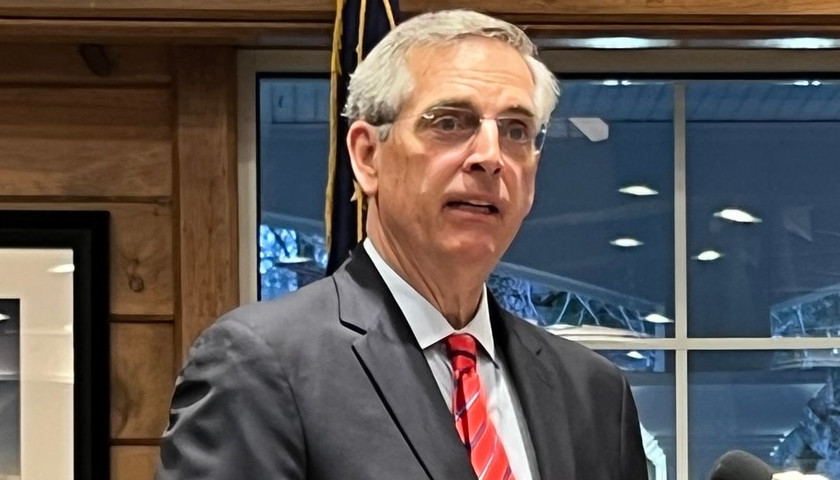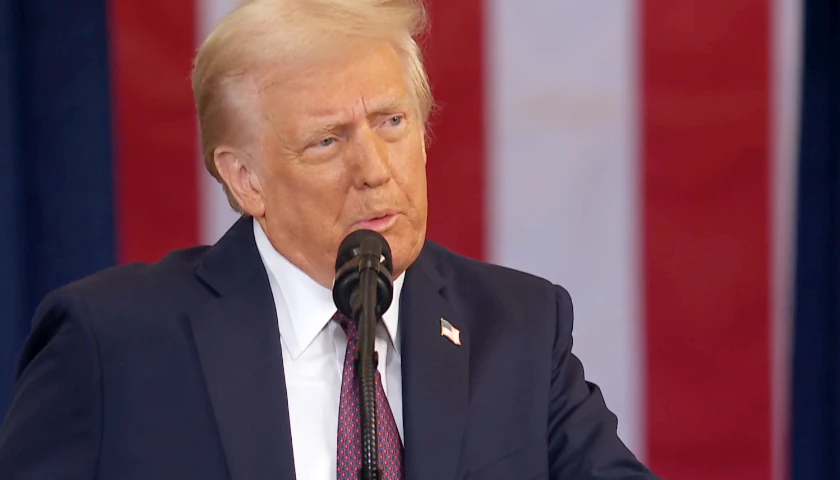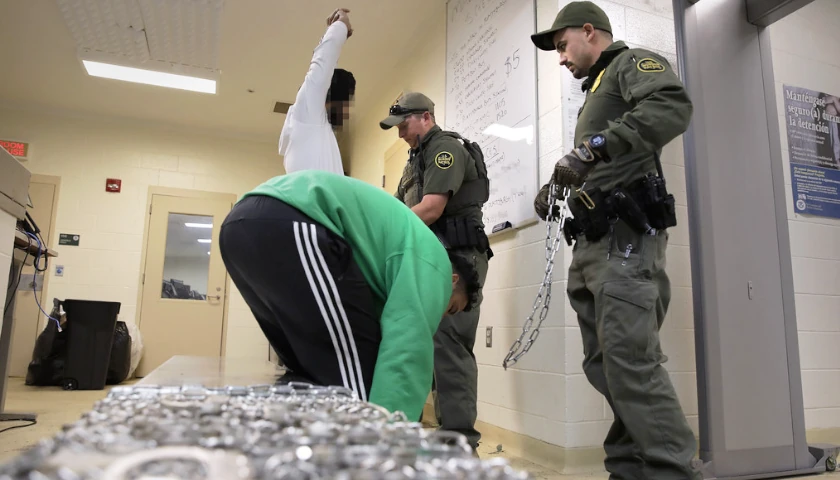by Natalia Mittelstadt
Georgia Secretary of State Brad Raffensperger (R) slammed DeKalb County for accepting $2 million in private money for election administration — or “Zuckerbucks” — in “violation” of state law while suggesting a legislative remedy to prevent counties from directly receiving such funds.
The DeKalb County Board of Voter Registration & Elections accepted $2 million from a nonprofit linked to Facebook founder Mark Zuckerberg.
DeKalb’s acceptance of the private funds “is a violation of S.B. 202,” Raffensperger told Just the News on Thursday, referring to Georgia’s 2021 election reform law.
“The legislative intent of S.B. 202 was to preclude any outside organizations from sending, directly, money to counties for election purposes,” the state’s top election official said, noting “the wording of S.B. 202 is the money should be sent to the secretary of state’s office,” then dispensed to the counties.
The rationale for dispensing the funds this way was so that “every county was treated uniformly throughout the state,” benefiting smaller counties as well as larger counties, he explained.
The county was awarded the funds under the Centers for Election Excellence program of the U.S. Alliance for Election Excellence, a project of the Center for Tech and Civic Life (CTCL). CTCL poured nearly $350 million into local elections offices managing the 2020 election, with most of the funds donated to the nonprofit by Zuckerberg.
CTCL has claimed its 2020 election grants — colloquially known as “Zuckerbucks” — were allocated without partisan preference to make voting safer amid the pandemic.
Critics of the unprecedented level of private funding injected into election administration offices in 2020 argue the grants were awarded disproportionately to boost voter participation in swing state Democratic strongholds. A House Republican investigation found that less than 1% of the funds were spent on personal protective equipment.
In 2021, Georgia enacted Senate Bill 202, an election integrity bill which explicitly prohibits private funding of elections, stipulating: “No superintendent shall take or accept any funding, grants, or gifts from any source other than from the governing authority of the county or municipality, the State of Georgia, or the federal government.”
DeKalb County Board of Elections Chair Dele Lowman Smith told local Georgia news outlet Decaturish.com last month that because election offices are prohibited from directly receiving grants, the county’s finance department applied for the grant.
Former Sen. Kelly Loeffler (R) called for investigation into DeKalb, saying the county “is blatantly skirting that law to get the same money, while undermining trust and fairness in our electoral process.”
In response to Loeffler’s comment, Lowman Smith said in a statement to The Atlanta Journal-Constitution that the former senator’s “baldly partisan accusations do not reflect an accurate reading of state law and undermine the work of already overburdened, underpaid public servants.”
Lowman Smith later added, “The DeKalb County Finance Department applied for the grant in accordance with state law, and our county attorneys conducted a diligent review to ensure the grant award met the letter of the law.
“While the General Assembly has a lot to say about how counties should run elections, they provide no funding to us to meet these legislative burdens,” she continued. “To then try and restrict counties from pursuing the funding necessary to meet our legal obligations — a longstanding practice for many government services besides elections — is a slap in the face and seems to indicate that their intention is to hamstring election administration entirely.”
Restoring Integrity and Trust in Elections (RITE) filed a legal complaint with the Georgia State Election Board against DeKalb, saying the county “was willing to violate state law to secure millions from a progressive dark money organization.”
According to CTCL’s 2020 Form 990 report, DeKalb County received $9,625,041 in grants from the nonprofit during the presidential election year. Meanwhile, Early County, Ga., received $37,109. DeKalb’s population was 762,009 in 2020, meaning that CTCL awarded the county $12.63 per capita. However, Early, with a population of 10,037 at the time, received only $3.70 per capita from CTCL. DeKalb voted for Biden 83.1% to Trump’s 15.7% in 2020, whereas Early voted for Trump 52.2% to Biden’s 47.2%.
While acknowledging that DeKalb has a “different reading of SB 202,” Raffensperger said the state’s General Assembly can ensure “that there’s no question about what legislative intent was” by adopting a “legislative remedy” in the current legislative session. Such a remedy would require that outside funds be channeled through the secretary of state’s office to either distribute on a per capita basis or parcel out evenly among the state’s 159 counties.
There are “several election bills” that have been filed, read, and/or assigned to committees, he noted.
On Thursday, the Senate Ethics Committee debated Senate Bill 222, which would tighten the restrictions on private funds going to election administration. Specifically, the bill would “provide that all costs and expenses relating to election administration are paid for with lawfully appropriate public funds” and “prohibit certain local governments and persons from soliciting or accepting donations or other things of value to support the performance of election administration.”
“We have to ensure the funding of our elections comes from lawfully appropriated public funds,” said Senate Ethics Chairman Max Burns (R), according to The Atlanta Journal-Constitution. “The intent is to prohibit third parties’ selective funding of elections.”
Despite the legislative remedy, Raffensperger praised S.B. 202 for how it standardized voter ID across all forms of voting in the state and added early voting days and allowed people to vote on Saturday. He noted that the state had “record registration” and “record turnout” in its midterm elections last year.
When S.B. 202 was enacted, Major League Baseball moved its All-Star Game from Atlanta to Denver, citing President Biden’s claim that the law would “restrict voting access for residents of the state.”
Biden blasted the law as an “atrocity,” likening it to “Jim Crow in the 21st century,” as corporations such as Coca-Cola and Delta Airlines publicly decried the law despite its broad support among Georgia voters.
DeKalb County didn’t immediately respond to a request for comment on Thursday.
– – –
Natalia Mittelstadt is a reporter at Just the News. Mittelstadt graduated from Regent University with Bachelor of Arts degrees in Communication Studies and Government.
Photo “Georgia Sec State Brad Raffensperger” by Brad Raffensperger.






What is the surprise? It is Dekalb County! Metro Atlanta! Ethics and virtue is not applicable. There are two classes of government people around Atlanta. The caught and the uncaught.